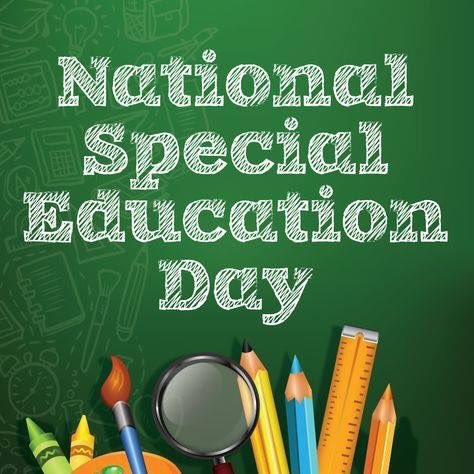Special Education Day Friday December 2nd
Alpena Public Schools recognizes National Special Education Day on Friday, December 2nd. It was first observed on December 2, 2005, on the 30th anniversary of the Individuals With Disabilities Education Act. It has since been observed every year as an important way to open up communication about how to advance special education to make it more available and better suited to more children that need it. Nationally about 15% of all students receive special education services. APS has 12% of students getting these vital supports. We salute our incredible special education staff that works to support the educational needs of these students as well as our special education students that strive daily to overcome challenges and attain their educational goals.
Special education refers to a range of services that can be provided in different ways and in different settings. It’s tailored to meet the needs of students with disabilities. Special education focuses on helping kids with disabilities learn. It’s all about the individual child and giving them the resources they need to make progress in school.The following categories are recognized under the Individuals with Disabilities Education Act (IDEA)
Specific learning disability (SLD) These conditions affect a child’s ability to read, write, listen, speak, reason, or do math
Other health impairment This covers conditions that limit a child’s strength, energy, or alertness
Autism spectrum disorder (ASD) It involves a wide range of symptoms, but it mainly affects a child’s social and communication skills. It can also impact behavior.
Emotional disturbance They may include anxiety disorder, schizophrenia, bipolar disorder, obsessive-compulsive disorder, and depression.
Speech or language impairment- A common example is stuttering. Other examples are trouble pronouncing words or making sounds with the voice. It also covers language problems that make it hard for kids to understand words or express themselves.
Visual impairment, including blindness This category includes both partial sight and blindness.
Deafness/Hearing impairment/Deaf-blindness
Orthopedic impairment is when kids lack function or ability in their bodies.
Intellectual disability Kids with this type of disability have below-average intellectual ability. They may also have limited communication, self-care, and social skills.
Traumatic brain injury
Multiple disabilities

Original source can be found here.

 Alerts Sign-up
Alerts Sign-up